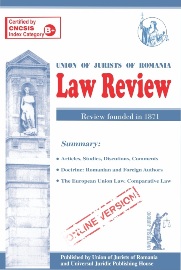- Scientific Life
International governance of the climate change. From the framework convention (1992) to COP-27 (2022)
For the past three decades, since the conclusion of the Framework Convention on Climate Change (1992), the climate issue entered and asserted itself more and more prominently on the world agenda, and a multilateral governance process was established to deal with it. Climate change is, by its nature and the challenges it entails, both an object of science, a political-legal problem and, last but not least, a civilizational stake. The interaction between, on the one hand, science, and on the other, politics and law, characterizes the process of international negotiations in the application of the general institutional-legal framework established in 1992, started by COP-1 (1995) and found once more at COP-27 (November 2022). In this context, the pending world governance, built under the auspices of the UN, has as its essential components the IPCC (1988), its periodic reports and the conferences of the parties to the Framework Convention, sometimes constituted in summits (with related documents), at which are attended, as debate and dialogue partners, in addition to the representatives of the parties, by NGOs, think tanks, actors of the business world, local communities, etc. The governance system thus characterizes the international climate regime, which is not reduced to an international legal regime, adding relevant aspects for other fields as well, which give it specificity and its own dynamics.
Volume XIII, issue 1, January-June 2023 2023

Summary
European Union Law
Administrative practices as an infringement of the law of the European Union
Overview on the criminal justice system in Bulgaria. Comparative law. A Bird’s Eye View
The profession of legal advisor in european countries
Legal regime of competition in Slovenia
International Law
Ruscism – A threat to international legal order and the security of all humanity
